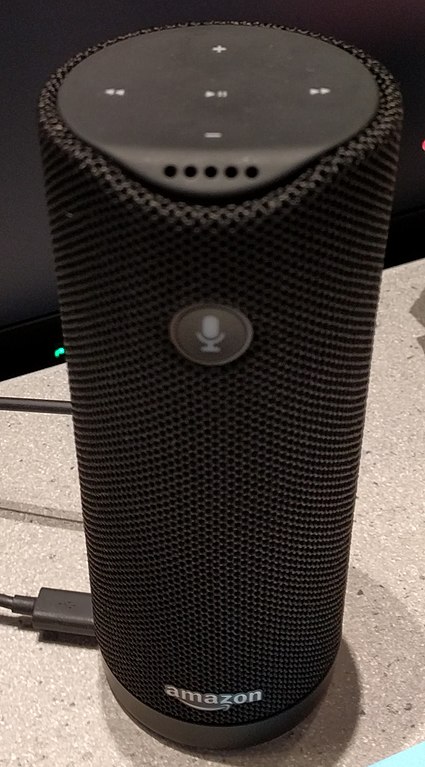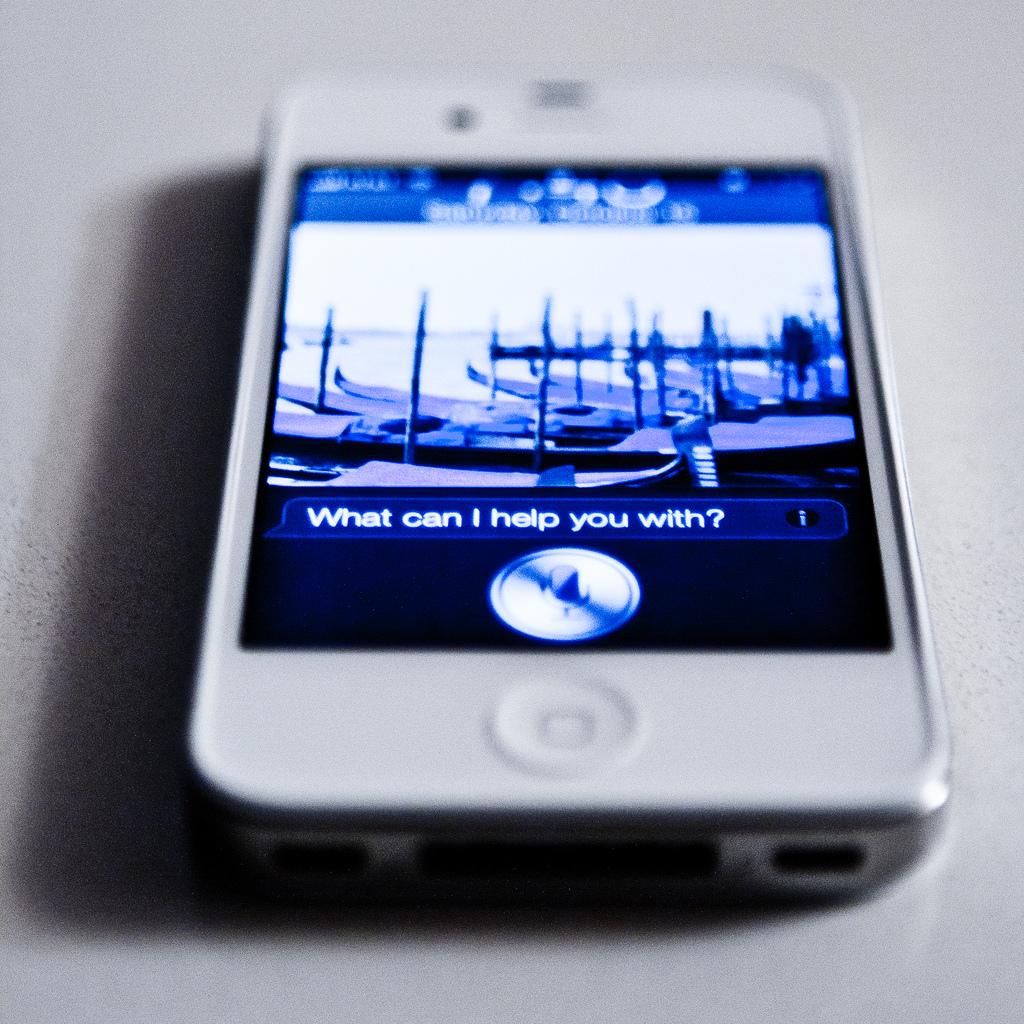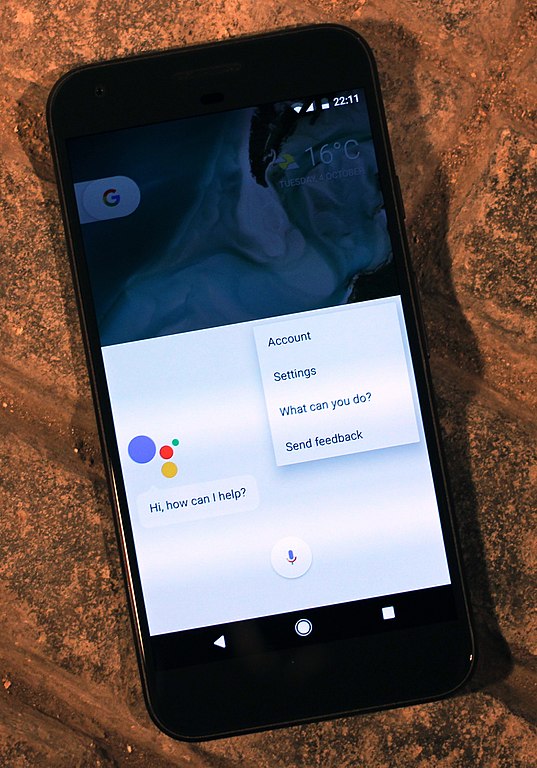People are using computer assistants (helpers) more and more. But as these assistants, such as Alexa, Siri, and Google Assistant, become more common, people are also discovering more problems with them.
Almost half of the adults in the US have used an assistant like this. Most people use them through their phones. But 1 in 6 adults in the US also has a “smart speaker” in the house. People can use these systems to make calls or send texts, to look at websites, or even to control their homes.

(Source: Daylen, via Wikimedia Commons.)
These systems are getting better and better at understanding what people are saying. They can even seem to talk back and forth with a person.
But underneath the fake voices, the systems are still just computer programs. They can make mistakes and they can be tricked. They can also trick humans.
Fooling Computers
Recently computer scientists have found ways to fool these “helpers”. They can make the assistant think you said something that you didn’t say – even something that might be the opposite of what you want. For example, the assistant might be tricked into taking you to a bad website, buying something you don’t want, or sending your money to someone else. If you can control your house with your phone, it could even turn on the lights or unlock your house.

(Source: Will Hastings, via Flickr.)
Computers don’t really understand the things that people say. They break the noise coming into the computer into small pieces. Then the computers make guesses about how to put the pieces back together as words. Finally, they make the best guess they can about what the person using the computer meant.
Scientists were able to use this weakness to trick a computer. They changed the sounds in a recording so the computer hears something completely different from what a human hears. In one example, a human would hear: “Without the data set, the article is useless.” But a computer would hear: “Okay, Google, browse to evil.com.” The scientists were also able to hide commands in music.
Humans hear “Without the data set, the article is useless.”
The computer hears “Okay, Google, browse to evil dot com.”
(Source: nicholas.carlini.com.)
Another way the assistants have been fooled is called “DolphinAttack”. Computer microphones can record sounds that are too high for humans to hear. A command can be recorded at such a high pitch that only the computer can hear it. The recording can be hidden in music or a YouTube video, for example.
Fooling Humans

Google is going to be adding the Duplex service later this year.
(Source: Maurizio Pesce from Milan, Italia, via Wikimedia Commons.)
Another problem can come up when a computer voice is too good. Last week Google showed off a new assistant they call Google Duplex. The system is meant to help people by making phone calls for them. The voice can have conversations with people at shops or restaurants so that you don’t have to.
People were amazed when they heard the voice because it sounds just like a human. It even stops and says things like “um” and “er”, as if it is thinking.
The “woman” asking for a hair cut is actually Google Duplex.
(Source: ai.googleblog.com .)
After Google played some of the Duplex conversations, many people complained. They said the voice was too natural. They said that humans should be able to tell whether they were talking to a computer or not.
Google now says that it agrees. Google Duplex will now say that it is a computer before it begins “talking to” people on the phone.
